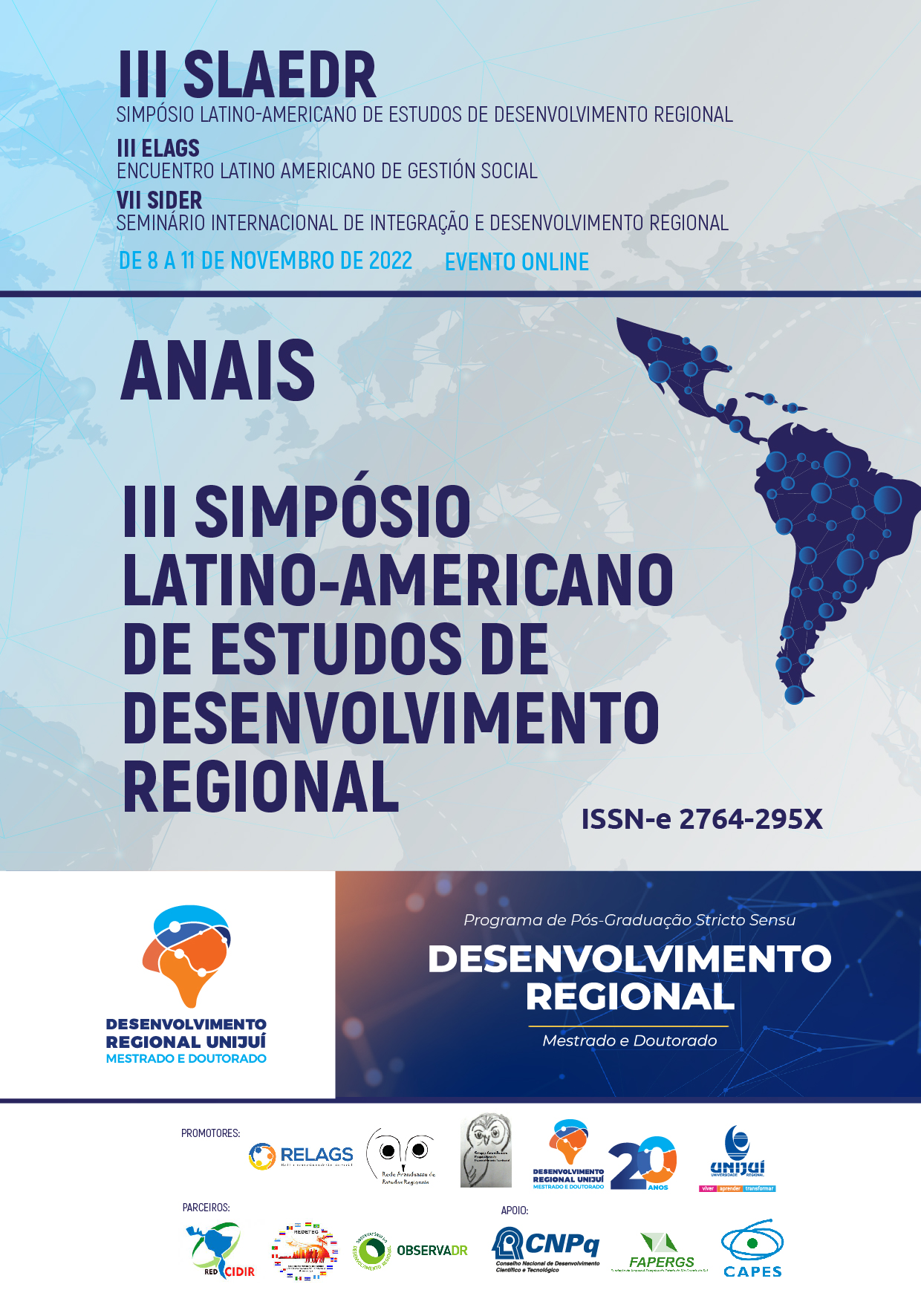THE GENESIS OF URBAN PLANNING IN BRAZIL:
PERSPECTIVES ON THE HOUSING ISSUE BETWEEN 1930 AND 1970
Keywords:
Habitation Crisis. State. Habitation. Urban Planning. Urban Question.Abstract
This study aims to analyze the brazilian urban planning in the past, emphasizing the social and
economic elements and contexts of the country's constitutive process. In this sense, it will seek to highlight the events prior to the construction of the housing issue, between the end of the 19th century and the beginning of the 20th century, with the advent of the First Republic and its materialization in the subsequent period from 1930 to 1970. Such events inspired and imprinted significant structural, cultural, political, economic and social changes in the country and, therefore, help, in their own way, the understanding of the urban and housing issue, as well as introduce elements for the understanding of this new current hegemonic (un)order. In order
to account for this analysis, the study will enumerate and order the facts of the period, with the purpose of interpreting, under the light of the adopted bibliography, the occurrence of the historical phenomena of urban planning in Brazil. Thus, what this study intends to demonstrate is the factual linkage of the urban question and urban planning in the national context.
References
ABREU, Mauricio A. Pensando a cidade do Brasil no passado. In Fridman, F.; Haesbaert, R. (orgs.). Mauricio de Almeida Abreu. Escritos sobre espaço e história. Rio de Janeiro: Garamond, 2014.
BENCHIMOL, Jaime L. Reforma urbana e Revolta da Vacina na cidade do Rio de Janeiro. In: Ferreira, J., Delgado, L. A. N. (orgs.). O Brasil Republicano. O tempo do liberalismo excludente. Da Proclamação da República à Revolução de 1930. 3a ed. Rio de Janeiro: Civilização Brasileira, 2008.
BERNARDES, Lysia. Política urbana: uma análise da experiência brasileira. Análise e Conjuntura, Belo Horizonte, v.1, n.1, p.83-119, jan/abr, 1986. Disponível em: http://www.ijsn.es.gov.br/ConteudoDigital/20180406_analiseeconjuntura_v.1_n.1jan1986_p.83_119_.pdf.
BONDUKI, Nabil G. BONDUKI, Nabil. Origens da habitação social no Brasil: arquitetura moderna, lei do inquilinato e difusão da casa própria. São Paulo: Estação Liberdade, 1998.
FELDMAN, Sarah. Entre o regional e o metropolitano: pensamento urbanístico e metrópole no Brasil na década de 1950. Revista USP (102), jun-ago 2014.
MELO, Marcus André B. C. A ideologia anti-urbana e a modernização da gestão municipal no Brasil: 1900-1960. In: Padilha, N. (org.) Cidade e urbanismo. Salvador: Mestrado em Arquitetura e Urbanismo/UFBA, 1998.
OLIVEIRA, Francisco. O Estado e o Urbano. Revista. Espaço & Debates, São Paulo, n. 6, jun./set. 1982.
PATTO, Maria Helena S. Estado, ciência e política na Primeira República: a desqualificação dos pobres. Estudos Avançados, v. 13, n. 35, 1999. Disponível em: https://doi.org/10.1590/S0103-40141999000100017.
SEVCENKO, Nicolau. A Inserção Compulsória do Brasil na Belle Époque. In: Literatura como missão. Tensões sociais e criação cultural na Primeira República. São Paulo: Brasiliense, 1985.
TOPALOV, Christian. Os saberes sobre a cidade: tempos de crise. Espaço e Debates (34), 1991.



